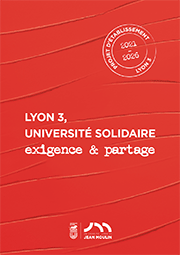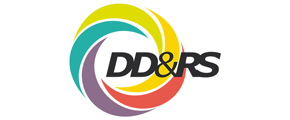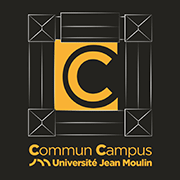AccueilRechercheProgrammes et productions scientifiquesThèsesThèses soutenuesThèses soutenues - 2006-2021Thèses soutenues - 2010
-
Partager cette page
- Recherche,
KENFACK DONGMO Clauvice Viliane
Un système multi-agents comme outil d'intermédiation pour les comunautés de pratiques.
Publié le 3 février 2011 – Mis à jour le 3 février 2011
Thèse en informatique soutenue le 4 juin 2010
Dans cette thèse, nous proposons la réalisation d’un système d’intermédiation à base d’agents pour favoriser l’émergence des connaissances dans les communautés de pratiques (CoPs). Pour cela nous utilisons comme base le concept de CoPs, d’émergence, d’intermédiation, ainsi que de la technologie des Systèmes multi-agents.L’objectif général du système est de favoriser la coopération entre les membres partageant cette connaissance. Un intérêt est porté aux agents cognitifs, en particulier quand ceux-ci traitent des problématiques de gestion des connaissances. Les systèmes multi-agents possèdent des spécificités intrinsèques, qui nécessitent la mise en place d'une démarche méthodologique originale intégrant tant la facette organisationnelle qu’individuelle et les outils technologiques de l’entreprise (outils utilisés par les membres appartenant à la communauté), pour proposer des méthodes d'ingénierie des connaissances basées sur des modèles conceptuels de coopération entre agents adaptés au contexte.Une approche théorique de la notion de coopération, et de la manière dont celle-ci se déroule au sein d’une communauté de pratiques, que nous différencions d’une communauté virtuelle est abordée.Partant d’une analyse de besoins du futur système à partir de plusieurs études de cas, nous avons déduit les spécificités fonctionnelles et techniques à prendre en compte dans la réalisation du système. Nous avons été amené à explorer la manière dont les agents cognitifs permettraient d'aborder le processus de diffusion, de partage et d’échange de connaissances à travers les dispositifs technologiques utilisés par les membres de la CoPs.Puis par la suite nous avons défini plusieurs phases dans le processus de développement de notre système. Ces phases partent de l’identification à l’analyse pour aboutir à la conceptualisation du système. Le coeur du travail a consisté, après l’identification des besoins, à spécifier dans la phase d’analyse les modèles susceptibles de répondre aux besoins du système à développer. Ainsi cette phase comporte le modèle organisationnel qui regroupe le modèle de connaissances et le modèle de r?le et le modèle SMA qui lui regroupe le modèle agent et le modèle de communication.En définitive nous débouchons sur la représentation d’un modèle générique basé sur une plateforme agent et qui sera caractérisé par l’introduction de plusieurs ? agents d’intermédiation ? assurant à différents niveaux, tant la collaboration que la coopération entre les membres de la communauté.
en In this thesis, we propose to model an intermediation system based on agents to promote the knowledge emergence in communities of practice (CoPs). For that we use as a basis the concept of CoPs, emergence, intermediation, and the technology of multi-agent systems. The overall objective of the system is to promote cooperation between members sharing that knowledge. Interest is focused on cognitive agents, especially when they deal with issues of knowledge management. The multi-agent systems have intrinsic characteristics that require the establishment of a methodology incorporating both organizational facet than individual tools and enterprise technology (tools used by members belonging to the community) to propose methods of knowledge engineering based on conceptual cooperation models among agents adapted to the context. A theoretical approach to the concept of cooperation, and how it takes place within a community of practice, we distinguish a virtual community is discussed. Based on a needs analysis of future system from several case studies, we derive functional and technical specificity that be considered to implement the system. We have been led to explore how cognitive agents would approach the process of knowledge dissemination, sharing and exchange through technological devices used by members of the CoPs. Then subsequently we have identified several phases in the process development of our system. These phases start from the identification to the analysis leading to the conceptualization of the system.The heart of the work consisted, after identifying the need to specify the phase of analysis models to meet the needs of the system to develop. Thus, this phase includes the organizational model that combines the knowledge model and the role model and the model which includes the SMA model agent and the communication model.Ultimately we came out on the representation of a generic model based on an agent platform, which will be characterized by the introduction of several "intermediation agents" to ensure different levels, both the collaboration and cooperation between community members.
en In this thesis, we propose to model an intermediation system based on agents to promote the knowledge emergence in communities of practice (CoPs). For that we use as a basis the concept of CoPs, emergence, intermediation, and the technology of multi-agent systems. The overall objective of the system is to promote cooperation between members sharing that knowledge. Interest is focused on cognitive agents, especially when they deal with issues of knowledge management. The multi-agent systems have intrinsic characteristics that require the establishment of a methodology incorporating both organizational facet than individual tools and enterprise technology (tools used by members belonging to the community) to propose methods of knowledge engineering based on conceptual cooperation models among agents adapted to the context. A theoretical approach to the concept of cooperation, and how it takes place within a community of practice, we distinguish a virtual community is discussed. Based on a needs analysis of future system from several case studies, we derive functional and technical specificity that be considered to implement the system. We have been led to explore how cognitive agents would approach the process of knowledge dissemination, sharing and exchange through technological devices used by members of the CoPs. Then subsequently we have identified several phases in the process development of our system. These phases start from the identification to the analysis leading to the conceptualization of the system.The heart of the work consisted, after identifying the need to specify the phase of analysis models to meet the needs of the system to develop. Thus, this phase includes the organizational model that combines the knowledge model and the role model and the model which includes the SMA model agent and the communication model.Ultimately we came out on the representation of a generic model based on an agent platform, which will be characterized by the introduction of several "intermediation agents" to ensure different levels, both the collaboration and cooperation between community members.
Mots-clés Management;Communauté de Pratiques;émergence;intermédiation;Coopération;Systèmes multi-agents;Jade;Wade
Key words : Management;Community of Practices;Emergence;Intermediation;Cooperation;Multi-Agents- System;JADE;WADE
Directeur de thèse : Danielle BOULANGER
Membres du jury :
Pierre MARET, Professeur, Université Jean Monnet, St Etienne
Fran?ois Xavier DE VAUJANY, Professeur, Université Paris Dauphine
Danielle BOULANGER, Professeur, Université Jean Moulin Lyon 3
Gilles DUBOIS, Ma?tre de conférences, Université Jean Moulin Lyon 3
Cécile FAURE, Ma?tre de conférences, Université Lyon 2
Sylvie LAINE CRUZEL, Professeur, Université Jean Moulin Lyon 3
Mention : Honorable
Equipe d'accueil : MAGELLAN
Key words : Management;Community of Practices;Emergence;Intermediation;Cooperation;Multi-Agents- System;JADE;WADE
Directeur de thèse : Danielle BOULANGER
Membres du jury :
Pierre MARET, Professeur, Université Jean Monnet, St Etienne
Fran?ois Xavier DE VAUJANY, Professeur, Université Paris Dauphine
Danielle BOULANGER, Professeur, Université Jean Moulin Lyon 3
Gilles DUBOIS, Ma?tre de conférences, Université Jean Moulin Lyon 3
Cécile FAURE, Ma?tre de conférences, Université Lyon 2
Sylvie LAINE CRUZEL, Professeur, Université Jean Moulin Lyon 3
Mention : Honorable
Equipe d'accueil : MAGELLAN
Documentation
Mise à jour : 3 février 2011







